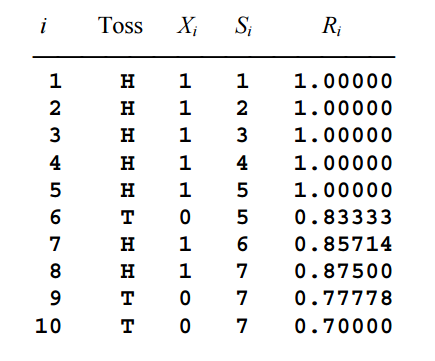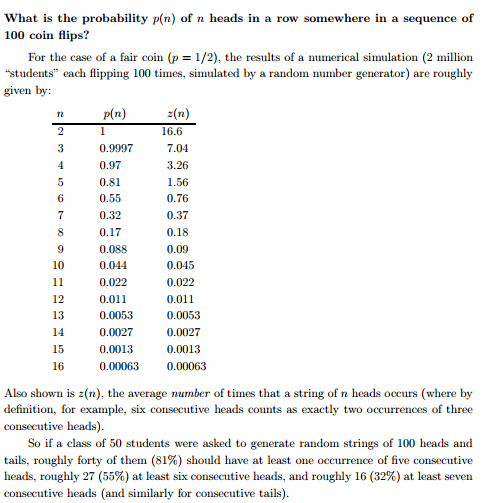10. You will have to make some of the most important decisions of your life/college early in school.
Remember when Draco comes up to Harry in before his sorting and gives him the ultimatum between success and glory with his crew of thugs and being friends with Ron? And Harry begs the hat to put him in anywhere but Slytherin as a result? Think of how those books would have been rocked had Harry befriended Draco instead. College forces you to make crucial social and academic decisions sometimes as soon as weeks before you start. Which dorm will you live in? Potluck or best friends for roommates? Do you join a sorority or a fraternity? Do you chose your schedule based off of the hot pepper and easiness ratings on ratemyprofessor? Some of these decisions you’ll look at fondly four years later. Some you’ll regret, but learn from nonetheless.
9. You can’t always get what you want, but if you try, sometimes you get what you need
Okay, so this one is borrowed a bit from Mick Jagger as well, but exemplified throughout the whole HP series. Whether it’s Harry getting an “E” on the Potions OWL exam that he needed an “O” in, or whether it’s a rejection letter from a major or program you are applying for- opportunities will present themselves to you. College is full of opportunities to get back on the hippogriff if you get buck off early. It will take a little extra elbow grease, but it will work out in the end.
8. Constant Vigilance
Mad-Eye Moody would make an excellent freshman mentor. This mantra doesn’t solely apply to your physical safety (though you should be sure to take care of yourself). It also applies to trying to maintain the delicate balance of your life for four years. Take a couple mental health days. Get that second helping of butter-beer. But also make sure you using your Skiving Snackboxes wisely- the last thing you want is to get booted out of the castle because of your grades.
7. Just take a chance and ask him/her out
Yes, you might end up looking like a fool. Yes, the girl you end up snogging to make your best friend jealous might end up being bat shit crazy. But, you’ll figure out what characteristics you do/don’t want in a mate. Maybe you’ll figure out that Cho Chang just isn’t your type. Or maybe Victor Krum will just fade out of your life after he goes back to Bulgaria, and you’ll just become distant pen pals. This doesn’t mean you should date everyone you see, but giving some people the benefit of the doubt with a first date can lead to some great things.
6. Your friendships are only as deep as you invest in them
That Patronus Charm might be useful for fighting off Dementors, but it won’t get you anywhere if you keep that shield up through all of your friendships. If you are 100% honest with your close friends about your dreams, problems, successes, and failures, you will get so much more out of those relationships than if you pretend that you’ve had your past erased by a Memory Charm. Harry, Ron, and Hermione had their rough patches, but in the end, because Ron and Hermione were eventually honest about their feelings for each other, because Harry confided in them about the horcruxes, and because they all put the highest value on their friendship investment, everything worked out. Not much is constant in college- it can be a rough ride. But the ride is so much more fun if you have friends by your side
5. Every school has a Dumbledore and McGonagall- find them and learn from them
At the age of 18 or 19, you feel pretty damn invincible. The reality is, you probably have about as much common sense, and still have about as much to learn, as the 11 year-old First Years at Hogwarts. That’s where your Dumbledores and McGonagalls come in. Seek out mentors who are accomplished, eager to work with students, a little cynical about the rules and administrative structure, and learn from them. These professors want to see their students flourish, and will provide you with valuable insight to accomplish your goals. Be warned though- this process will likely not be easy. These professors generally push students to perform beyond their comfort zone and thus may be the most challenging (yet rewarding) classes you will encounter in your time in college.
4. Take some fluffy, interesting courses
You can take the Time-Turner route of course scheduling for eight straight semesters. But you’ll be more thankful to yourself if you throw in that occasional, fluffy, Divination course. There is a lot to be said for maintaining your mental health during college.
3. Some of your most important lessons won’t be in the classroom
I’m pretty sure we can all agree that History of Magic and Astronomy were pretty useless courses when it came down to the bare bones. A few valuable critical thinking skills were enhanced, but the most important moments of learning happen through kinesthetic and experiential learning. Harry wouldn’t have been as nearly prepared to destroy horcruxes had he not participated in the Triwizard Tournament. As much as Dolores Umbridge will insist that you only need to know the theory- practicing what you learn in an environment outside of the classroom should, and generally is, the outcome we strive for. This is one of the reasons that maintaining your social and professional networks are important. For most, a 4.0 shows diligence and a certain level of intellect, but a 3.7 as a result taking a couple nights to grab some mead at the Leaky Cauldron might serve you better in the long run.
2. Money doesn’t equal happiness
The Weasleys had a few tough instances in terms of school financing, but overall, the cash strapped family was happy and healthy. Contrasted with the disfunction of the Malfoy family, it’s clear that although money allows you the opportunity to buy your way into the Slytherin Quidditch team, it’s not a causal factor in generating your success and happiness. You (almost certainly) will make stupid financial decisions in college, accrue debt, and eat many a package of Ramen. Cherish these days- it builds strong character and humbles you. Something about being consistently broke creates this universal bond with your peers too, and it’s nice to be in on that in some ways.
1. Establish your values early, and stick to them
At the end of the day, a person can only be judged on their values and actions. At the end of your time in college, you should be able to proudly on the decisions that you have made- regardless of the specific outcome. Staying true to yourself throughout college is vital to your growth as a student and person. Stick by your true friends, be true to them. Try to do right whenever possible. Your dreams and goals may require some growing pains, but rarely will they require you to compromise your values and to do harm. If they do, you need to reevaluate your goals and pathway.


